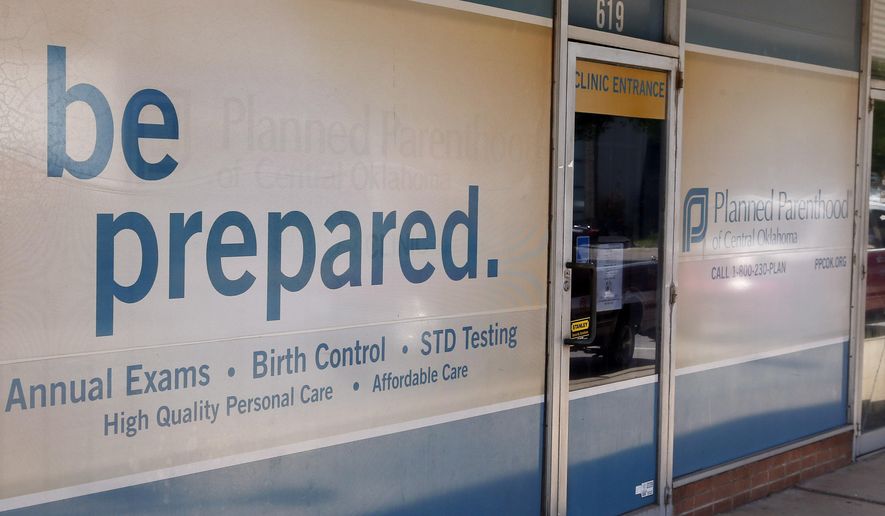David Daleiden’s plans to release more undercover video on the fetal tissue business hit a wall Monday after a federal judge blocked his pro-life group from releasing any footage taken at the National Abortion Federation’s annual meetings.
U.S. District Court Judge William H. Orrick III in San Francisco sided with the NAF in its request for a temporary injunction pending a lawsuit against the Center for Medical Progress, extending the temporary restraining order that he issued Friday.
The temporary injunction prevents the center from releasing video or other information on the highly secure meetings, but does not affect its release of footage taken at other events or meetings unrelated to the NAF.
The center was hit with two temporary restraining orders last week halting the release of undercover video from two venues — a dinner at a Sacramento-area restaurant with StemExpress employees and annual meetings of the National Abortion Federation in San Francisco and Baltimore.
California is one of 10 states that requires those recording to obtain the consent of “all parties to a confidential communication.” The law makes an exception for circumstances “in which the parties to the communication may reasonably expect that the communication may be overheard or recorded.”
Allison K. Aranda, senior legal counsel with the Life Legal Defense Foundation, argued that the recordings were obtained legally, saying, “California only requires consent to record ’confidential communications.’”
The footage released since July 13 includes Planned Parenthood officials haggling over the price of fetal tissue during lunches at restaurants in California. There are also scenes filmed within a Planned Parenthood clinic, but those take place in Colorado, a one-party recording state.
“As you can see in the first few videos, the conversations [in California] take place in crowded restaurants surrounded by other patrons and wait staff who are constantly walking by,” said Ms. Aranda. “Any conversation in this type of setting could easily be overheard by a number of individuals, and thus there is no expectation of privacy in a conversation that takes place in such a location.”
She added that, “CMP in no way violated the law by recording the conversations with Planned Parenthood and StemExpress officials in California.”
But Nikki Moore, staff attorney with the California Newspaper Publication Association, said that just because a conversation takes place in a restaurant doesn’t mean it can’t be considered a confidential communication.
“It’s all about the context of the situation,” Ms. Moore said.
For example, if the people involved spoke quietly and paused when others passed their table, a judge may decide that they intended their discussion to be private.
“Depending on the two people who are sitting there, if they are conducting themselves in a way to ensure that no one was overhearing them, their argument is stronger that they had a reasonable expectation of privacy,” Ms. Moore said.
The conversation with center investigators and three StemExpress employees took place May 22 at a restaurant in El Dorado Hills, about 30 miles east of Sacramento.
Los Angeles Superior Court Judge Joanne O’Donnell, who granted a temporary restraining against the center filed by StemExpress, is slated to hear the company’s arguments for a temporary injunction pending a lawsuit on Aug. 19.
Also fighting the release of undercover footage is the National Abortion Federation, which contends that the center investigators secretly taped video at the pro-choice organization’s annual meetings in San Francisco and Baltimore. California and Maryland are both two-party recording states.
As many as 800 people attended the annual meetings, but the NAF employs strict security, including requiring attendees to sign nondisclosure agreements divulging the date and location of the meetings only to those attending.
In its motion, the federation argues that the undercover investigators obtained the footage illegally because they signed nondisclosure agreements in which they agreed not to videotape.
“While the fraudulent contracts are voidable at NAF’s election, the law is clear that NAF also has the right to enforce them against the individuals behind the fraud,” said the motion.
The NAF also says that its members had an “objectively reasonable expectation that conversations and discussions at NAF annual meetings would not be surreptitiously recorded,” citing the tight security and secrecy surrounding the gatherings.
Mr. Daleiden, who headed the Human Capital investigation into fetal tissue donations, has said he plans to release as many as a dozen videos. So far he has released four.
“The Center for Medical Progress follows all applicable laws in the course of our investigative journalism work,” he said in a Friday statement.
• Valerie Richardson can be reached at vrichardson@washingtontimes.com.




Please read our comment policy before commenting.